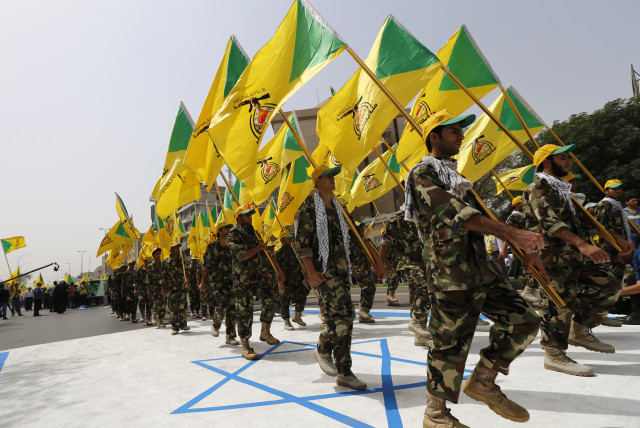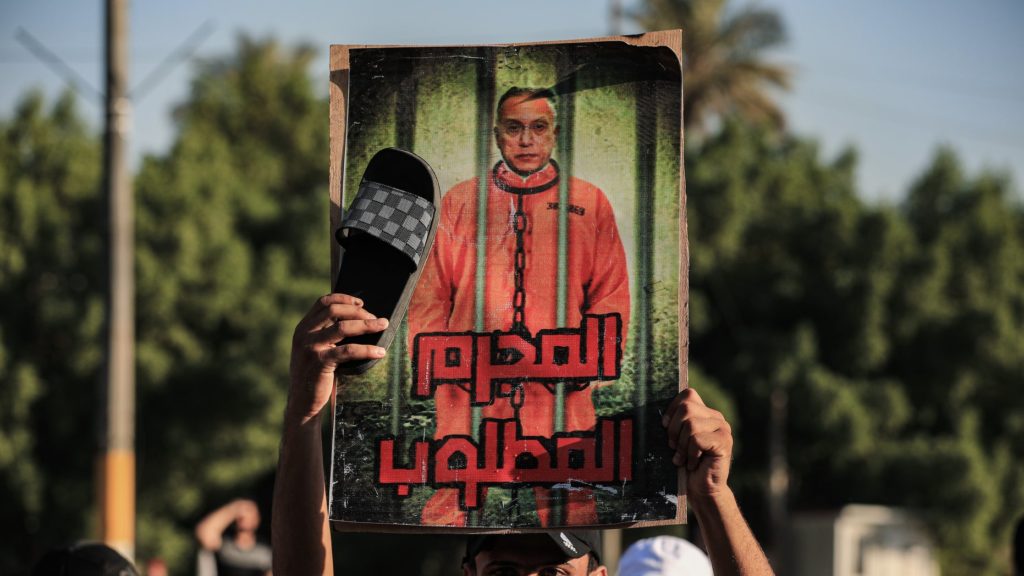
Iraqi prime minister called for ‘calm and restraint’ after escaping unhurt from a drone attack on his Baghdad residence. No group immediately claimed responsibility but “there’s a lot of circumstantial evidence pointing to the Iran-backed Iraqi militias”
Baghdad: Iraq’s Prime Minister Mustafa al-Kadhimi has survived an assassination attempt after drones laden with explosives targeted his residence in the capital, Baghdad, in an incident that dramatically raises tension in the country weeks after a general election disputed by Iran-backed militia groups.
Al-Kadhimi escaped unhurt, but security sources told Reuters news agency that at least six members of the prime minister’s personal protection force were wounded in Sunday’s attack.
Security forces in the area shot down two drones while the third managed to hit al-Kadhimi’s residence in Baghdad’s Green Zone, which houses government buildings and foreign embassies, Interior Ministry spokesman Saad Maan told state television al-Iraqiya.
“Al-Kadhimi was not harmed, while some people in the house suffered injuries. They are receiving treatment,” the official added without giving details.
No group immediately claimed responsibility for Sunday’s attack.
Al-Kadhimi appealed for calm and restraint in a post on Twitter.
“I’m doing fine, praise be to God, and I call for calm and restraint on the part of everyone for the good of Iraq,” he said.
He later appeared on Iraqi television, seated behind a desk wearing a white shirt and looking composed. “Cowardly rocket and drone attacks don’t build homelands and don’t build a future,” he said.
Iraqi President Barham Salih called the attack a “terrorist aggression” and a “heinous crime” against Iraq.
“This requires unity against the evildoers targeting the security of this country and its people’s safety,” Salih said on Twitter.
The early morning attack came two days after deadly protests in the Iraqi capital over the result of a general election held on October 10.
The groups leading the protests are heavily armed Iran-backed militias that lost much of their parliamentary power in the election. They have alleged voting and vote-counting irregularities.
The police responded with tear gas and live fire, killing at least one demonstrator.
Some of the leaders of the most powerful militia factions openly blamed al-Kadhimi for Friday’s clashes and the protester’s death.

“The blood of martyrs will hold you accountable,” said Qais al-Khazali, leader of the Asaib Ahl al-Haq militia, addressing al-Kadhimi at a funeral held for the protester.
“The protesters only had one demand against fraud in elections. Responding like this (with live fire) means you are the first responsible for this fraud,” he said.
Al Jazeera’s Mahmoud Abdelwahed, reporting from Baghdad, said residents of the city heard explosions and gunfire from the Green Zone on Sunday and that security has been tightened in and around the central district.
He also said a spokesman for the pro-Iran militias, known as the Hashd al-Shaabi, said he was “very sceptical of the assassination attempt, saying that this is just made up by the government in a bid to put blame on the protesters”.
Preliminary results of the October vote showed that a bloc led by influential Muslim Shia leader Moqtada al-Sadr won 73 seats, maintaining its position as the largest group in Iraq’s 329-member parliament. While he maintains good relations with Iran, al-Sadr publicly opposes external interference in Iraq’s affairs.
Meanwhile, the political arm of Hashd al-Shaabi, which is known as the Conquest Alliance, was the biggest loser winning about 15 seats, down from 48 in the last parliament.
Independent analysts say the election results were a reflection of anger towards the Hashd al-Shaabi, which are widely accused of involvement in the killing of nearly 600 protesters who took the street in separate, anti-government demonstrations in 2019.
‘Stupid and shortsighted’
Randa Slim, director of the Conflict Resolution and Track Two Dialogues Program at the Middle East Institute, said Sunday’s attack was not “just an attack on al-Kadhimi, it is also an attack against the political class”.
“It really amounts to a coup attempt,” she told Al Jazeera, adding that while there has been no claim of responsibility, “there’s a lot of circumstantial evidence pointing to the Iran-backed Iraqi militias”.
Noting that the militias have blamed al-Kadhimi for the protester’s death on Friday, she said the relationship between al-Kadhimi and the Iran-backed militias have been tense for a long time.
“Recently, some members of the militias have been indicted for killing some of the protesters two years ago. And al-Kadhimi’s late adviser, Hisham al-Hashemi, was assassinated by suspected members of these militias. So they and al-Kadhimi have been engaged in this tug of war and they stand to benefit most from forcing al-Kadhimi out of the picture.
“But in my opinion, it’s a very stupid and shortsighted move, because if anything it’s going to make al-Kadhimi a victim and will elevate his political chances of going back to the prime minister’s office.”
Meanwhile, Iran’s top security official, Ali Shamkhani, condemned Sunday’s attack, calling it “a new sedition”.
“The attempt … is a new sedition that must be traced back to foreign think-tanks,” he said on Twitter, without giving further details.
The United Nations Assistance Mission for Iraq also condemned in the “strongest terms the assassination attempt” against Kadhimi.
In a statement, UNAMI said: “Terrorism, violence and unlawful acts must not be allowed to undermine Iraq’s stability and derail its democratic process.”
For its part, the United States strongly denounced Sunday’s attack.
“This apparent act of terrorism, which we strongly condemn, was directed at the heart of the Iraqi state,” said Ned Price, spokesman for the US Department of State.
“We are in close touch with the Iraqi security forces charged with upholding Iraq’s sovereignty and independence and have offered our assistance as they investigate this attack,” he added.
Al Jazeera

Leave a Reply
You must be logged in to post a comment.